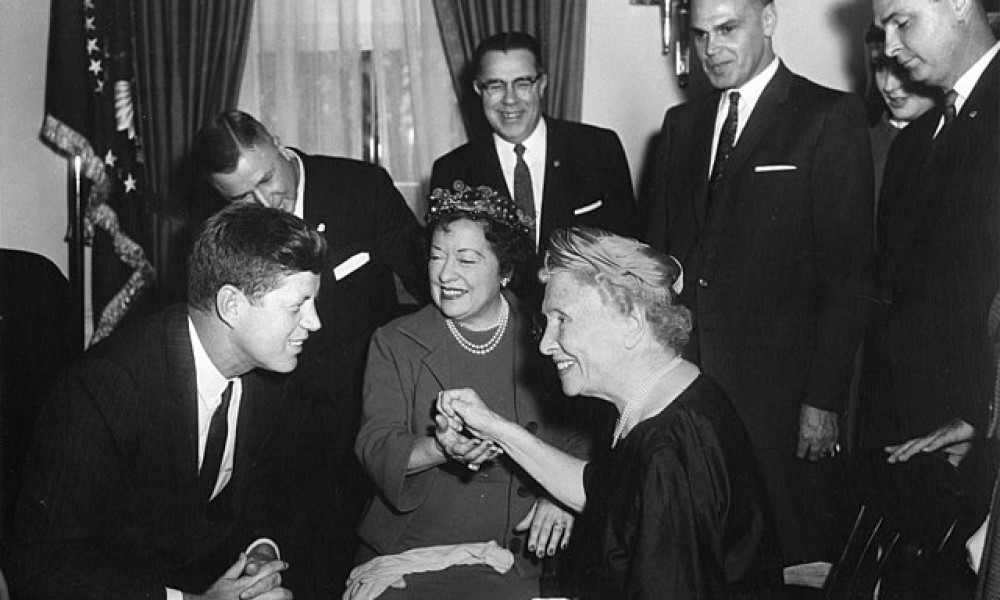
Blind and deaf as an infant, Helen Keller became internationally-renowned for her work as a writer, lecturer, political activist, and pioneer for people with disabilities. With the help of her childhood teacher and longtime companion Anne Sullivan, Keller first learned to communicate through a finger alphabet system. In time, Keller even graduated from college and began working for the American Foundation for the Blind. During her 44 year-tenure, she toured the U.S. and traveled to 35 countries around the globe, advocating for those with disabilities. Besides writing various articles, Keller wrote 14 books, all of which were published. Over the course of her life, various awards, honorary degrees, and citations were conferred upon Keller by organizations around the world. After her passing in 1968, Keller continued to be recognized posthumously. In 1973, she was inducted into the National Women's Hall of Fame, and in 1980, a stamp was issued by the U.S. Postal Service to mark the centennial of Keller's birth.
After overcoming numerous obstacles to pass admissions examinations, Keller entered Radcliffe College/Harvard University in 1900. (In those days, Harvard was for men only, and its professors taught women in a separate institution, Radcliffe College.) At Radcliffe, with the aid of Anne Sullivan and other tutors, Keller managed to take a full program of 17 1/2 courses. She studied French, German, History, Mathematics, and English literature. Sullivan worked hard too. She attended all of Keller's classes and used the manual alphabet to share the lectures with Keller. She also helped Keller with her homework by reading books to her that weren't available in Braille. After four years, Keller graduated cum laude.
Throughout her life, Keller maintained a deep connection to Radcliffe, the school which had, in 1904, allowed her to become the first deaf-blind person to earn a Bachelor of Arts degree. Over fifty years later, she returned to set another school record: becoming the first woman to ever receive an honorary degree from Harvard University. This historic occasion took place on the Harvard campus in 1955. The citation for the new doctor of laws stated, "From a still, dark world she has brought us light and sound; our lives are richer for her faith and her example."
Today, Keller's tremendous legacy continues to be celebrated by her alma mater. Notably, Radcliffe's Schlesinger Library – one of Harvard's special collections libraries – boasts a large archival collection titled, "Papers of Helen Keller, 1898-2003." Among the rare and unique items from Keller's life are clippings, photographs, letters, and other materials that help tell the story of how Keller overcame extreme adversity to become one of the most memorable women in U.S. history.
